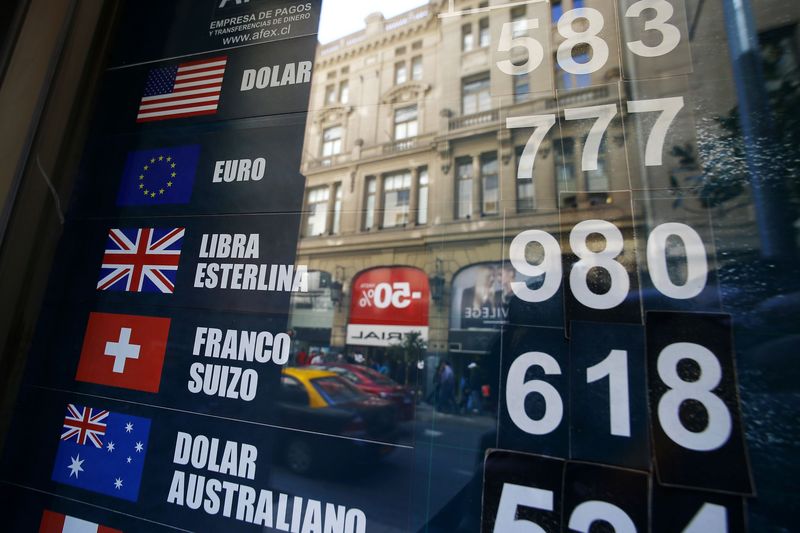By Marc Jones
LONDON (Reuters) - Chile's central bank is taking the recent fall in its currency with a "pinch of salt", the bank's head said on Thursday, though the bank is likely to nudge up next month's new set of inflation forecasts.
Chile's peso, like most emerging market currencies, has been pounded by the dollar since February. It has knocked more than 5 percent off it, though that looks like small change compared with the 22 percent lost by neighboring Argentina's peso.
"The best thing for us is to be prepared, have the shock absorbers and take this with a pinch of salt," central bank governor Mario Marcel told Reuters during a trip to London.
He added that the volatility in Chile was nothing like the "exceptional" moves that last caused it to intervene in FX markets back in 2012, and could be directly explained by the dollar's broader strength.
The weakening of the peso makes imports more expensive and was likely to lead to slightly higher inflation forecasts at the bank's meeting next month.
Chile currently has interest rates at 2.5 percent, but its inflation rate has long been well below its goal of around 3 percent. A central bank poll this week showed economists nudging their projections up, too.
As the world's largest copper exporter and a wide open economy, it is also well used to wild currency swings. The peso slumped 50 percent between 2014 and 2016 when commodity prices plunged but by this March was back up 35 percent.
"The things that have changed the most is effectively the exchange rate," Marcel said, acknowledging that the move had been faster than predicted.
"We have to assess how much of that is likely to last for the longer term, so we are definitely trying not to overreact."
Chile's openness plus a modest fiscal deficit does make it vulnerable during dollar turbulence, but it has some clear strengths compared with some other countries.
Selling copper in dollars acts as a natural shock absorber to currency pressure, and its inflation rate is a tenth of neighboring Argentina's, while its reserves look plentiful.
On top of that, 15-18 percent of its debt is dollar-denominated compared with close to 40 percent for some in Latin America and Marcel said that corporates and households had barely any unhedged FX exposure.
"In the last few weeks there have been a lot of noise around emerging markets."
"What is new is that sense that there might be some risk ahead is now starting to take shape."
He also said he expected to see little impact on Chile from the latest currency crisis in Argentina, which it shares a long border with all the way up from Latin America's southern tip.
Only 1.5 percent of Chile's trade goes there, and there is no strong linkage via their banking systems.
Instead, his main concern is the drumbeat of protectionism coming from the United States and being directed primarily at one of Chile's big copper buyers, China.
U.S. President Donald Trump has already slapped tariffs on steel and aluminum and though copper doesn't seem to be in the cross-hairs, there could be knock-on effects.
"A trade dispute is likely to rattle markets as it has done already in a more muted way."
"As a central bank, we also have to watch out for changes in financial conditions."
